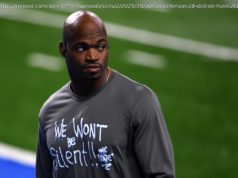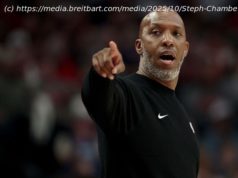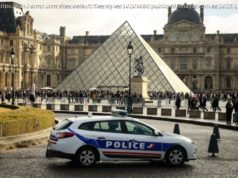WASHINGTON — President Donald Trump called out the nearly 30 states expressing concerns about the legality of his administration’s efforts to investigate voter fraud, asking what the states might be hiding in a tweet Saturday morning.
WASHINGTON — President Donald Trump called out the nearly 30 states expressing concerns about the legality of his administration’s efforts to investigate voter fraud, asking what the states might be hiding in a tweet Saturday morning.
“Numerous states are refusing to give information to the very distinguished VOTER FRAUD PANEL. What are they trying to hide, ” Trump wrote.
The Trump administration’s Presidential Advisory Commission on Election Integrity sent all 50 states a letter Wednesday requesting data from the their voting rolls, including the full names of registered voters, dates of birth, party registration, last four digits of Social Security numbers and voting history.
But as of Friday afternoon, at least 27 states had publicly expressed reservations or legal barriers to turning over all of the requested information, particularly with regard to the privacy of Social Security numbers, according to a CNN inquiry to all 50 states. Several others, including South Carolina and Arkansas, had not yet received the letter from commission Vice Chair Kris Kobach.
Some state officials also expressed concerns that the request was evidence of an agenda by the Trump White House and dismissed it as politically motivated posturing.
“I have no intention of honoring this request, ” Virginia Gov. Terry McAuliffe, a Democrat, said in a statement. “Virginia conducts fair, honest, and democratic elections, and there is no evidence of significant voter fraud in Virginia. This entire commission is based on the specious and false notion that there was widespread voter fraud last November. At best this commission was set up as a pretext to validate Donald Trump’s alternative election facts, and at worst is a tool to commit large-scale voter suppression.”
Mississippi Secretary of State Delbert Hosemann, a Republican, said of Kobach’s letter: “My reply would be: They can go jump in the Gulf of Mexico, and Mississippi is a great state to launch from. Mississippi residents should celebrate Independence Day and our state’s right to protect the privacy of our citizens by conducting our own electoral processes.”
Connecticut Secretary of State Denise Merrill, a Democrat, said she would share information that is publicly available “in the spirit of transparency” while also protecting private voter information. But she also criticized Kobach’s track record and expressed concern in an ulterior motive.
“In the same spirit of transparency, we will request that the commission share any memos, meeting minutes or additional information, as state officials have not been told precisely what the commission is looking for, ” Merrill said. “This lack of openness is all the more concerning, considering that the vice chair of the commission, Kris Kobach, has a lengthy record of illegally disenfranchising eligible voters in Kansas.”
Kobach, who is Kansas’ secretary of state, backed a national cross-referencing system to allow states to check their voter rolls for overlaps, which drew criticisms that the system was too prone to allowing legitimate voters to be purged from voting systems.
Kobach also fought unsuccessfully in court for the ability to require verification of citizenship on voter registration forms.
Senate Majority Leader Mitch McConnell has said he wants state governments to perform the task of wiping voters who have died or moved away off their voting rolls.
“This sort of thing is handled at the state level, and the Democrats always claim there’s no election fraud at all, ” the Kentucky Republican told CNN’s Jake Tapper in February. “That is, of course, not true — election fraud does occur, ”
“There’s no evidence that it occurred in such a significant number that would have changed the presidential election, ” he added. “And I don’ t think we ought to spend any federal money investigating that.”






